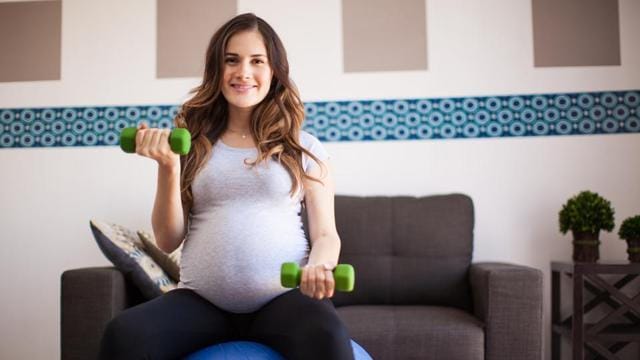Women have complex physiological structures, largely due to the role nature has assigned them in continuing the human race. However, as they reach a certain age, particularly 35, reproductive health requires greater attention due to various physiological and lifestyle factors.
Why does reproductive health decline after 35?
In an interview with HT Lifestyle, Dr Anjali Nain, Senior Dietician at Healthians, answered, “Fertility naturally declines with age as the quantity and quality of eggs downgrades. This happens due to hormonal changes, like reduced estrogen levels, that disrupt ovulation and menstrual cycles, making conception more challenging. Additionally, women in this age group face a number of lifestyle diseases like gestational diabetes, hypertension, etc that possess the risk of pregnancy-related complications.”
She revealed, “After conceiving there are increased risks of preterm birth, and chromosomal abnormalities like Down syndrome, all of which necessitate careful monitoring. Underlying conditions, such as polycystic ovary syndrome (PCOS) from a younger age, thyroid dysfunction and obesity, can further exacerbate these challenges.”

Is pregnancy possible in your late 30s?
Despite the challenges, pregnancy is not impossible in your 30s. Dr Anjali Nain advised, “Women must ensure a healthy and low-risk pregnancy. A balanced diet rich in antioxidants, omega-3 fatty acids, folate, iron, and zinc can significantly support egg quality, hormonal balance and fetal development. Nutrient-dense foods like leafy greens, nuts, seeds, fatty fish, and lean proteins are vital. Plus, a good workout routine to help in absorbing nutrients and maintaining a healthy weight is crucial.”
She added, “Make sure to check your BMI and work accordingly as being underweight or overweight can adversely affect ovulation and hormonal balance. It is also advisable that male partner must also consider maintaining a healthy lifestyle.”
Regular health screenings and gynecological check-ups are essential to identify and manage reproductive health issues early. Dr Anjali Nain highlighted, “Your doctor will also share some stress management techniques such as Yoga, meditation, and deep breathing to regulate hormones and emotional well-being.”

She concluded, “Follow the same and make lifestyle adjustments like avoiding smoking and alcohol and reducing exposure to environmental toxins, can significantly enhance reproductive health. Consulting a fertility specialist for preconception care is strongly recommended. Modern medical interventions, such as IVF, egg freezing and genetic testing, provide advanced solutions for those facing fertility challenges.”
Note to readers: This article is for informational purposes only and not a substitute for professional medical advice. Always seek the advice of your doctor with any questions about a medical condition.





